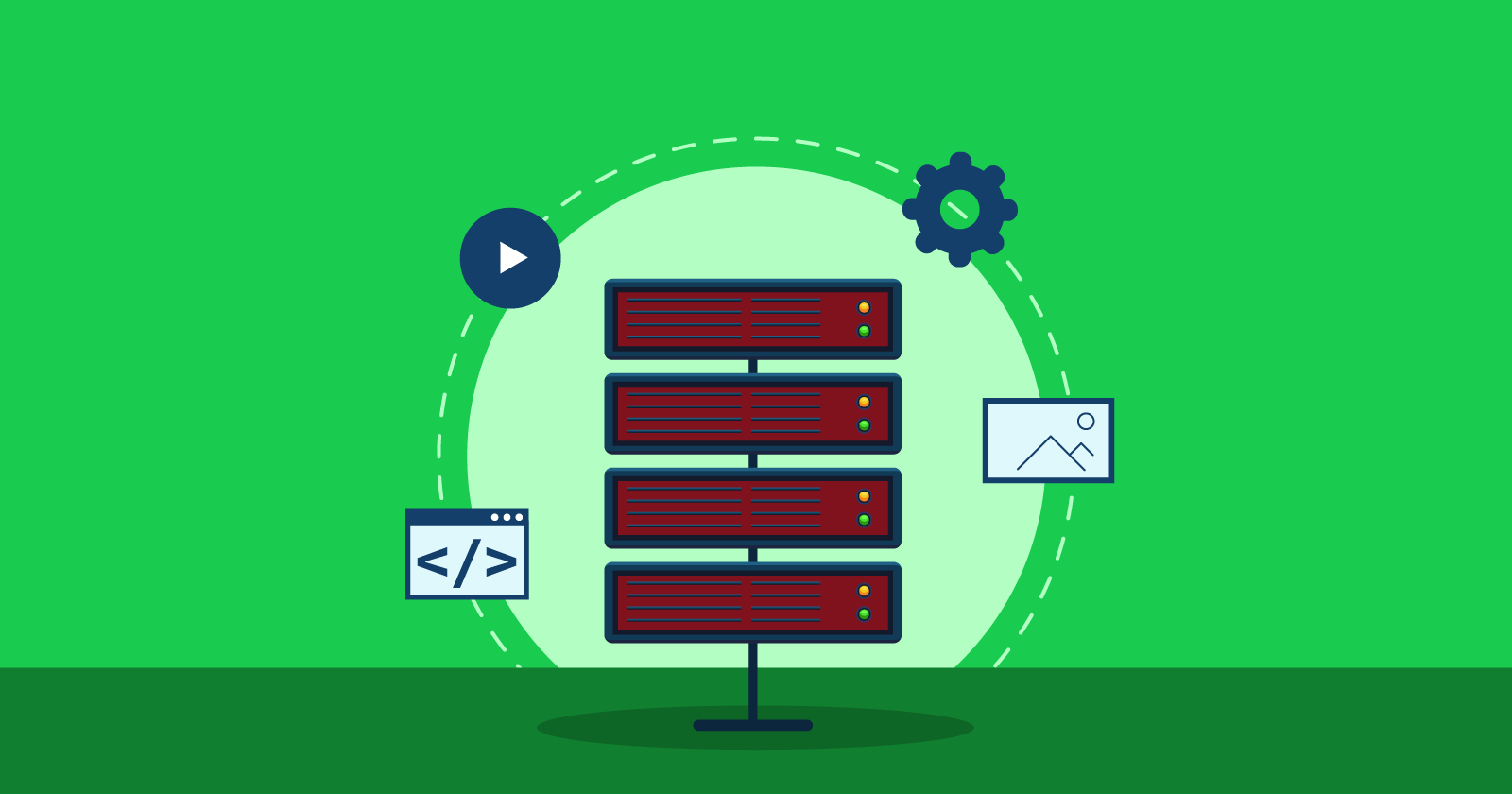

chsyys/Burst
Choosing the correct hosting environment is crucial for the success of internet-dependent applications. Virtual Private Servers (VPS) stand out as a strong and adaptable option with notable advantages over other hosting methods.
We have outlined eight benefits of opting for a VPS Server for your project, including complete server management, scalability, and enhanced security. VPS Servers are preferred by numerous companies, developers, and designers due to these features. Explore more!
What is a VPS server and who is it meant for?
A VPS server, short for Virtual Private Server, functions as a dedicated server within a physical server by utilizing virtualization technology to run multiple independent operating systems on one machine. VPS is suitable for various scenarios where its usage is advisable.
Developers and programmers frequently require personalized setups for testing applications, incorporating various libraries and frameworks, and modifying system configurations. A VPS provides extensive control over the environment, enabling easier implementation and test development. It also allows for the creation of virtual replicas of production servers for testing purposes without impacting the primary infrastructure.
Websites and web applications that need more resources than shared hosting can benefit from a VPS, especially useful for sites with fluctuating traffic like online stores and blogs.
Specialized systems and applications that need particular server setups not found in typical hosting services can also take advantage of the flexibility offered by a VPS.
Online games and other resource-intensive applications, such as those requiring extensive data processing, are well-suited for utilizing virtual servers with specialized capabilities.
These are only a couple of instances. Let’s delve deeper into the benefits of these and other forms of utilization that a VPS server can provide.
Benefits of utilizing a VPS server
Using a VPS server for an online project can provide benefits over other hosting choices. Here are eight advantages to consider.
Full control over the server
A VPS server provides complete control over the environment, allowing the user to have root access with maximum privileges for customizing software, system settings, and configurations to meet project requirements. Top VPS providers offer this feature.
You have the option to choose between operating systems like VPS Linux (such as Ubuntu, CentOS, Debian) or Windows Server, which is important for application compatibility and personal preferences.
With complete control over the server, users have the freedom to install and set up any software that works with the selected operating system. This allows developers to customize the environment by adding specific applications, libraries, frameworks, or any other necessary tools for their projects.
Managing CPU and RAM resources is an important aspect of this hosting mode, allowing users to select machine capabilities to optimize performance and ensure sufficient resources for handling application traffic and operations.
This flexibility in customization comes with certain obligations, like having to conduct software updates independently. It may also be essential to install security patches provided by the operating system and libraries’ suppliers.
2. Resources that are allocated exclusively for a specific purpose.
A VPS provides exclusive resources such as processing capacity, RAM, and storage, ensuring consistent performance as you do not have to share these resources with other users, unlike shared hosting.
A VPS provides resource isolation, ensuring that each virtual server operates independently to prevent one server’s activities from impacting the performance of others on the same physical server.
Having dedicated features provides benefits such as having a separate bandwidth for your VPS, predetermined disk space, and increased control over task priority.
Scalability refers to the ability to expand or adjust a system’s capacity to handle growth or increased demands.
It’s simpler to expand vertically by increasing VPS resources as required, without the need for migrating to a more powerful server. Many companies allow for seamless adjustment of resources without the hassle of migration, a common requirement with shared or dedicated servers.
This hosting option is beneficial for web applications that encounter fluctuations in traffic. It allows you to easily increase CPU, RAM, storage, or bandwidth as needed when your site experiences growth in traffic or higher resource requirements.
The scalability of a VPS server also enables you to decrease resources as required, which can help cut costs during low activity periods by avoiding payment for unused resources.
VPS providers make it easy to quickly add extra resources like more RAM or storage with just a few clicks, simplifying scalability and avoiding downtime or complicated migrations.
4. Safety and Protection
You can customize server settings to enforce specific security protocols according to your project requirements. Furthermore, the segregation of various VPS servers on a single physical server enhances security by creating isolation layers.
On a VPS server, each instance functions independently, ensuring that any issues or activities on one VPS do not impact others on the same server. This virtual isolation enhances security compared to shared hosting.
Having complete control over the server allows you to establish personalized firewall configurations for managing incoming and outgoing traffic, enhancing security by preventing unauthorized access and safeguarding against malicious attacks.
Personalizing the surroundings.
A significant benefit of a VPS server is the ability to personalize the environment, including choosing from various operating systems like Linux (Ubuntu, CentOS, Debian, AlmaLinux, CloudLinux) or Windows Server.
After selecting the operating system, users have complete authority to install and set up web servers like Apache, Nginx, and IIS, as well as databases such as MySQL, PostgreSQL, and SQL Server.
Libraries, frameworks, and programming languages can be freely installed, enabling the customization of development environments.
Services providing Shell (SSH) access enable users to manage servers via terminal and command lines, facilitating administrative tasks, custom scripts, and automations. Some VPS services offer SSH access without root permissions, limiting certain privileges on the server. Prior to selecting a service, verify whether root access is available if needed.
You have the option to choose a personalized graphical user interface if you are using a graphical interface or control panel to manage your server. Various VPS providers provide customization choices for the user interface, where control panels like cPanel, CyberPanel, and Plesk can be manually or automatically installed based on the provider, simplifying server settings management.
Cost of advantage
VPS are often more affordable than dedicated servers and provide a cost-effective solution for various web projects due to their balance of performance and price.
VPS servers are more affordable than dedicated servers because they use the same physical hardware with virtualized dedicated features, enabling cost-sharing among multiple users.
Many service providers offer payment plans based on usage, which can be monthly or even hourly. This allows users to pay only for the resources utilized during a specific period, making it beneficial for projects with fluctuating demand.
Resource isolation refers to the separation of resources.
Each VPS functions independently on a physical server, ensuring that its performance remains unaffected by the traffic or activity of other VPS on the same server, resulting in a more consistent and anticipated user experience.
Resource isolation ensures that the performance of your server remains stable and consistent, even in shared hosting environments where multiple VPSs share the same physical server. This means that the performance of your VPS is not affected by the activities of neighboring VPSs, such as traffic peaks or resource-intensive tasks.
Resource isolation is crucial in ensuring that activities in one environment do not impact another when applications have separate development and production environments running on distinct virtual machines. This is essential to prevent testing or upgrades in development environments from causing disruptions in the production environment.
Eight. Data Backup and Restoration
In a VPS, you have the option to select among various backup techniques such as local, remote, or cloud-based backups, giving you the flexibility to tailor your backup strategy to meet your specific needs and preferences.
Many VPS providers provide backup and recovery solutions to help protect project data and enable recovery in case of failures. These solutions may offer automatic or manual backups based on user preferences.
Summary
A VPS server is an excellent choice for various web projects because of its flexibility, control, performance, and cost efficiency. Scalability and complete control of the environment are key benefits of this hosting option.
The decision on whether to opt for VPS, shared hosting, or other service types will vary based on the specific requirements of your project.
Here is our team’s top picks for VPS servers if you are thinking about hiring one. Feel free to reach out with any inquiries through comments or email for assistance.
Publication date: December 21, 2023


